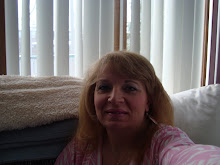This man is amazing! I'm curious about his name and wonder if he is related at all to THE SIEMENS corporation? Wouldn't that be cool?
Anyway, I took a class this summer about valuing diversity and it had a very different spin on it. We devoted a good portion of the class to valuing diversity in technology among our peers, students, colleagues, etc. It was a very interesting and refreshing spin on a familiar topic. We read "The World if Flat" which reminds me very much of the George Siemens' article.
I've never thought too much about social networking. Initially, it appeared (to me, at least) to be a vehicle for high school and college students to have fun. Then I read about social networking for "my" generation and I was still only mildly interested. To some degree, I find it self-indulgent, narcissistic and vain to post every little detail about my life (where I'm going, what I've done that day, what I'm thinking about) in such a public forum. I do admit to changing my thinking, especially in light of Siemens' comments about how important it is, for social beings, to externalize thoughts in a public way. He says (in the Conflict of Learning Theory within Human Nature:
http://www.youtube.com/watch?v=xTgWt4Uzr54&feature=PlayList&p=3E43054A8703F57A&index=2) that: "We desire, we crave, the ability to externalize what is in our heads" which really changed my thinking. Yes, it may appear self-centered to disclose to humanity at large what we are thinking in our most private thoughts, but it appears to be an innate need of humans, dating back to our first recordings of primitive thoughts.
I was also fascinated by Siemens' discussions of "weak" links, which I had never heard of. But, he makes some really interesting points about the magnitude and depth of the links which bind us together in a social society. In his article, he says:
Weak ties are links or bridges that allow short connections between information. Our small world networks are generally populated with people whose interests and knowledge are similar to ours. Finding a new job, as an example, often occurs through weak ties. This principle has great merit in the notion of serendipity, innovation, and creativity. Connections between disparate ideas and fields can create new innovations.
Siemens, G. (2005, January). Connectivism: A Learning Theory for the Digital Age. International Journal of Instructional Technology and Distance Learning(sorry - can't figure out how to indent to indicate a long quote)
Yes, our world is very small (which is the point of the book "The World is Flat") and it is full of links (hence that game of the Six Degrees of Kevin Bacon). I liked the illustration of finding a job, as that put the concept of "links" in perspective for me.
I had a difficult time thinking of an analogy to describe learners and how I view them. I tend to think of life in terms of parties and feeding people, so here goes: A learner is like a buffet table loaded with traditional, exotic and novel foods; there is so much to sample and taste, some speak to our upbringing and values, others make us adventurous and daring. We should savor what we know and love, but also be courageous enough to dare to try the roasted alligator or curried pears, because we'll never know our true tastes if we only live inside our comfort zones. What a shame it would be to bypass all of these available delicacies to stay with the tried and true. We have limitless possibilities of learning and will only reach our potential as life-long learners if we continue to sample the unknown and nibble on balsamic glazed escargot every now and then.
Siemens talks about social networking and our need to externalize our thoughts. Eating great food can be a social event (why Weight Watchers says we celebrate in groups but diet alone) a great connector of lives (families, friends, co-workers, strangers,
acquaintances). In terms of Siemens' discussion of links, food would be a strong link, in my opinion, and learning would be just as strong. Through learning, we come together with others of similar interests (a college course, a poetry reading, a cooking class, a horse show) and create new links, strong and weak.



